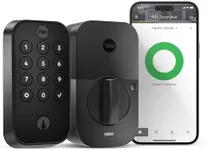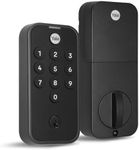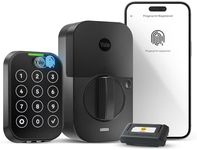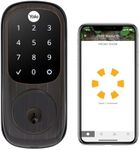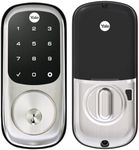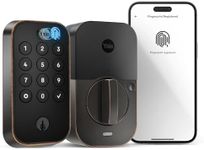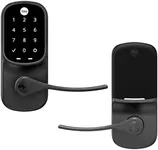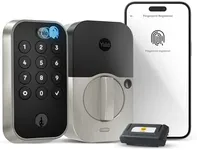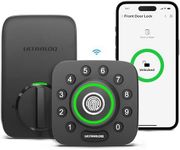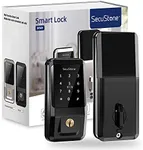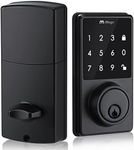Buying Guide for the Best Yale Door Locks
Choosing the right Yale door lock is crucial for ensuring the security and convenience of your home. When selecting a door lock, it's important to consider various specifications that will meet your specific needs. Understanding these key specs will help you make an informed decision and find the best fit for your situation.Lock TypeThe lock type refers to the mechanism used to secure the door. Common types include deadbolts, smart locks, and lever handle locks. Deadbolts are known for their strength and are ideal for exterior doors. Smart locks offer convenience with features like keyless entry and remote access, making them suitable for tech-savvy users. Lever handle locks are easier to operate and are often used for interior doors. Choose a lock type based on the level of security you need and your preference for convenience.
Security GradeSecurity grades indicate the level of protection a lock provides. These grades are usually assigned by organizations like ANSI (American National Standards Institute). Grade 1 locks offer the highest level of security and are suitable for exterior doors in high-risk areas. Grade 2 locks provide good security for residential use, while Grade 3 locks are typically used for interior doors. Consider the location and security needs of the door when selecting the appropriate grade.
Keyless EntryKeyless entry allows you to unlock your door without using a traditional key. This feature can include keypad entry, fingerprint recognition, or smartphone access. Keyless entry is convenient for those who frequently lose keys or want to provide access to multiple users without distributing physical keys. If you value convenience and modern technology, a lock with keyless entry might be the right choice for you.
ConnectivityConnectivity refers to the lock's ability to connect with other smart home devices and systems. Some Yale locks can integrate with home automation systems, allowing you to control the lock remotely via a smartphone app or voice commands. This feature is beneficial for users who want to enhance their home security system and enjoy the convenience of remote access. If you have a smart home setup or plan to create one, consider a lock with strong connectivity options.
Power SourceThe power source for smart locks can vary, with options including batteries, hardwiring, or a combination of both. Battery-powered locks are easier to install and maintain, but you need to monitor and replace the batteries periodically. Hardwired locks offer a more permanent solution but require professional installation. Choose a power source based on your preference for ease of installation and maintenance.
Durability and Weather ResistanceDurability and weather resistance are important for locks used on exterior doors. Look for locks made from high-quality materials like stainless steel or brass, which can withstand harsh weather conditions and resist tampering. Weather-resistant locks are essential for maintaining security and functionality in various climates. If you live in an area with extreme weather conditions, prioritize locks with high durability and weather resistance.
Ease of InstallationEase of installation refers to how simple it is to install the lock on your door. Some locks come with DIY installation kits and clear instructions, making them suitable for homeowners who prefer to do it themselves. Others may require professional installation, especially if they involve complex wiring or integration with other systems. Consider your comfort level with DIY projects and whether you are willing to hire a professional when choosing a lock.
